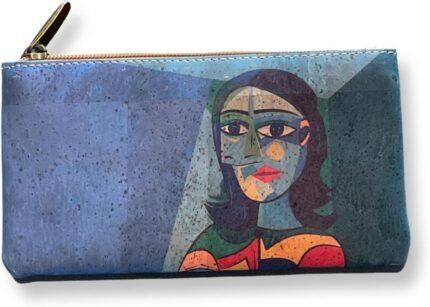Price: $34.95 - $26.99
(as of Sep 19, 2024 22:51:52 UTC – Details)
A new “farm-to-closet” vision for the clothes we wear–by a leader in the movement for local textile economies
There is a major disconnect between what we wear and our knowledge of its impact on land, air, water, labor, and human health. Even those who value access to safe, local, nutritious food have largely overlooked the production of fiber, dyes, and the chemistry that forms the backbone of modern textile production. While humans are 100 percent reliant on their second skin, it’s common to think little about the biological and human cultural context from which our clothing derives.
Almost a decade ago, weaver and natural dyer Rebecca Burgess developed a project focused on wearing clothing made from fiber grown, woven, and sewn within her bioregion of North Central California. As she began to network with ranchers, farmers, and artisans, she discovered that even in her home community there was ample raw material being grown to support a new regional textile economy with deep roots in climate change prevention and soil restoration. A vision for the future came into focus, combining right livelihoods and a textile system based on economic justice and soil carbon enhancing practices. Burgess saw that we could create viable supply chains of clothing that could become the new standard in a world looking to solve the climate crisis.
In Fibershed readers will learn how natural plant dyes and fibers such as wool, cotton, hemp, and flax can be grown and processed as part of a scalable, restorative agricultural system. They will also learn about milling and other technical systems needed to make regional textile production possible. Fibershed is a resource for fiber farmers, ranchers, contract grazers, weavers, knitters, slow-fashion entrepreneurs, soil activists, and conscious consumers who want to join or create their own fibershed and topple outdated and toxic systems of exploitation..
From the Publisher


photo by Kalie Cassel-Feiss






DAN MALLOY
surfing ambassador, Patagonia; cofounder, Poco Farm, Ojai, CA
PAUL HAWKEN
author of Blessed Unrest; editor of Drawdown
MEGAN MEIKLEJOHN
Sustainable Materials and Transparency
Manager, Eileen Fisher


illustration by Andrew Plotsky


From the introduction:
“Because we have been disconnected from the impacts our clothes have on land, air, water, labor, and our own human health for such a long time, we’ve been lulled into a passive, non-questioning state of being as consumers. When we begin reconnecting these dots, however, we create opportunities to build new relationships that are rooted in sharing skills, physical labor, and creativity, all of which carry meaning, purpose, and a way to belong to one another and to the land. While there has been important work in recent decades to ensure access to safe, local, nutritious food as a culture, we have largely overlooked the production of fibers and dyes that make up our clothing. In fact, when people hear the word clothing, most automatically think, Oh, I don’t care about fashion, and assume it has nothing to do with them. But clothing—like food—matters because we directly engage with it every single day.”
Chapters include The Cost of Our Clothes The Fibershed Movement Soil-to-Soil Clothing and the Carbon Cycle The False Solution of Synthetic Biology Implementing the Vision Expanding the Fibershed Model
Publisher : Chelsea Green Publishing; Illustrated edition (November 19, 2019)
Language : English
Paperback : 288 pages
ISBN-10 : 1603586636
ISBN-13 : 978-1603586634
Item Weight : 2.31 pounds
Dimensions : 7 x 0.63 x 10 inches


















Reviews
There are no reviews yet.